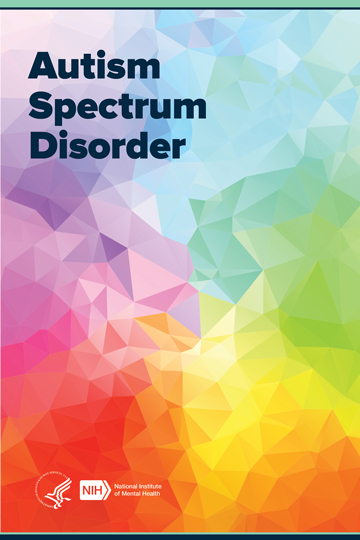Ingenious Treatments and Treatments: Developments in Autism Research Study
Ingenious Treatments and Treatments: Developments in Autism Research Study
Blog Article
Comprehending Autism: A Comprehensive Guide to Signs And Symptoms and signs
Autism Spectrum Condition (ASD) incorporates a wide range of attributes that can significantly impact a person's social communications and day-to-day functioning. Recognizing these subtleties not just aids caregivers and educators in offering ideal assistance however likewise cultivates an extra inclusive setting for people with ASD.
Review of Autism Spectrum Disorder
Specifying Autism Spectrum Condition (ASD) includes acknowledging it as an intricate neurodevelopmental problem defined by an array of obstacles in social communication, interaction, and behavioral patterns. The term "range" mirrors the broad variability in signs and symptoms and their seriousness, which can differ considerably from one person to an additional. ASD commonly shows up in very early childhood years, although some people might not get a diagnosis until later in life.
Factors affecting the growth of ASD include genetic predispositions and environmental factors, although the precise causes stay under examination. Diagnosis typically depends on behavioral analyses, as there are no clear-cut medical tests for ASD. Early treatment is vital and can substantially enhance outcomes, concentrating on improving communication abilities, social interactions, and adaptive actions.
Individuals with ASD might likewise display unique toughness, such as outstanding interest to information or particular areas of proficiency. Recognizing the diverse nature of ASD is important for cultivating an inclusive setting that fits neurodiversity. Proceeded research study is vital for establishing effective treatments and support systems, allowing people with ASD to prosper and fulfill their prospective within society.
Typical Indicators of Autism
Acknowledging the usual indicators of Autism Spectrum Condition (ASD) is essential for early identification and treatment. These signs can differ widely in severity and discussion, yet certain features are frequently observed in individuals with ASD.
One of the most prevalent indications is a marked problem in keeping and developing eye call. People may also exhibit limited interest in social interactions and reveal a preference for solitary play.
Sensory sensitivities are also common; individuals may underreact or overreact to sensory stimulations, such as structures, lights, or audios. autism. Language development can be irregular, with some youngsters displaying postponed speech or making use of language in unusual means, consisting of echolalia-- duplicating phrases or sentences heard elsewhere
It is important to note that not every individual with ASD will display all these signs, and the level of these actions can differ considerably. Early recognition permits prompt assistance and sources, boosting the top quality of life for those on the spectrum.
Social Interaction Difficulties
Social communication challenges are a trademark of Autism Range Disorder (ASD), influencing a person's capability to engage effectively with others. These problems can materialize in various ways, consisting of difficulties in launching and preserving conversations, recognizing social hints, and responding properly in social interactions.
People with ASD may deal with nonverbal communication, such as eye contact, faces, and body language. This can cause misunderstandings, as their communicative intent might not be correctly analyzed by others. They might find it tough to realize the nuances of tone and context, which are crucial for efficient interaction.
In team settings, individuals with ASD may really feel overwhelmed and may not know just how to join in conversations (autism). They may also display atypical conversational patterns, such as monologuing about certain interests without recognizing social reciprocity
Additionally, these challenges can result in social seclusion or difficulties in creating partnerships, as peers might misunderstand their behavior or description communication style. Comprehending these social communication challenges is crucial for promoting encouraging settings that promote social skills development and improve the high quality of communications for people on the autism range.
Sensory Sensitivities and Actions
Several individuals with Autism Spectrum Click Here Condition (ASD) experience increased sensory sensitivities that can dramatically influence their everyday lives. A person with ASD might discover everyday sounds, such as a vacuum cleaner or crowded environments, extremely distressing, leading to stress and anxiety or meltdowns.
Sensory handling differences in people with ASD can likewise affect their capacity to participate in routine tasks and social interactions. For instance, a kid who is delicate to touch may withstand physical love or stay clear of specific clothing textiles. A preference for certain appearances or preferences can limit nutritional options and develop obstacles during mealtimes.
Recognizing these sensory sensitivities is necessary for recognizing the distinct experiences of people with ASD. Recognition of their sensory profiles can promote better interaction and assistance techniques, producing an environment that accommodates their needs and improves their high quality of life. Inevitably, acknowledging sensory sensitivities is an important part of understanding the wider range of autism.

Sustaining Individuals With Autism
Reliable assistance for individuals with Autism Spectrum Condition (ASD) is important for enhancing their total health and fostering self-reliance. Assistance strategies ought to be customized to fulfill the distinct requirements of each person, considering their difficulties and toughness.

Social skills training can likewise play a crucial role. autism. Engaging individuals in team tasks or role-playing circumstances can boost their ability to navigate social interactions. Furthermore, it is important to educate relative, caregivers, and peers regarding ASD to promote a comprehensive and encouraging area
Verdict
Finally, an extensive understanding of Autism Spectrum Condition is vital for acknowledging its signs and symptoms and indicators. Early recognition of typical attributes, such as social interaction difficulties and sensory level of sensitivities, allows caregivers and instructors to execute effective treatments. By cultivating improved interaction and social abilities, individuals with autism can navigate their settings extra efficiently. Inevitably, enhanced awareness and assistance can substantially enhance the high quality of life for those influenced by ASD.
Autism Spectrum Problem (ASD) includes a wide array of attributes that can considerably influence a person's social interactions and day-to-day functioning.People with ASD may battle with nonverbal continue reading this communication, such as eye contact, face expressions, and body language.Many people with Autism Spectrum Disorder (ASD) experience enhanced sensory sensitivities that can dramatically affect their day-to-day lives.Sensory processing differences in individuals with ASD can additionally influence their capacity to involve in regular activities and social communications.Understanding these sensory level of sensitivities is necessary for recognizing the special experiences of individuals with ASD.
Report this page